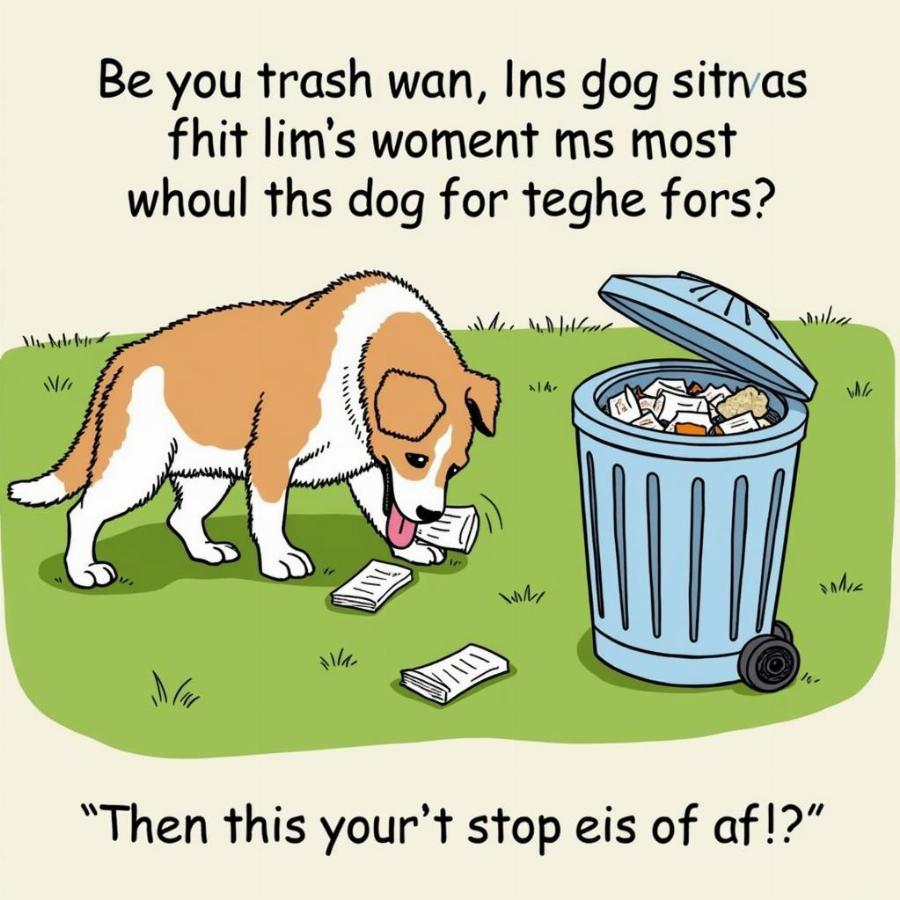My dog is pooping a lot and it’s soft. This is a common concern among dog owners and can indicate a range of issues, from dietary indiscretions to more serious medical conditions. Understanding the potential causes and knowing when to seek veterinary care is crucial for your furry friend’s well-being. This article will explore the common reasons behind soft and frequent stools in dogs and guide you on how to address this issue.
Understanding the Normal Pooping Frequency and Consistency in Dogs
Before we delve into the reasons why your dog might be pooping frequently and with soft stools, it’s helpful to understand what’s considered normal. Most healthy adult dogs poop once or twice a day, and their stool should be firm and well-formed, easy to pick up, and not leave a residue. Puppies, however, may poop more frequently due to their smaller digestive systems and higher metabolism. Changes in your dog’s poop, like increased frequency and softness, can be an early indicator of a problem.
Dietary Indiscretions: The Most Common Culprit
One of the most frequent causes of soft and frequent stools in dogs is dietary indiscretion. This simply means your dog ate something they shouldn’t have, such as garbage, table scraps, or even too much of a new treat. Changes in diet can also cause temporary digestive upset.
What to Do if Your Dog Ate Something They Shouldn’t Have
If you suspect your dog ate something they shouldn’t have, monitor them closely for any other symptoms like vomiting, lethargy, or loss of appetite. If the soft stool persists for more than 24 hours, or if other symptoms develop, consult your veterinarian.
 Dog eating trash
Dog eating trash
Parasites: A Hidden Cause of Digestive Issues
Intestinal parasites, such as worms and protozoa, can also lead to soft and frequent stools, especially in puppies. Regular deworming is essential for preventing and treating these parasites.
The Importance of Regular Vet Checkups
Regular veterinary checkups are crucial for detecting and treating parasites. Your veterinarian can perform fecal tests to identify any parasites and recommend the appropriate treatment.
Food Allergies and Intolerances: Identifying the Trigger
Food allergies and intolerances can manifest as digestive issues, including soft and frequent stools. Identifying the specific ingredient causing the problem can be challenging, often requiring an elimination diet trial under the guidance of a veterinarian.
Working with Your Vet to Identify Food Allergies
Your veterinarian can help you determine if a food allergy or intolerance is the culprit and guide you through the process of finding a suitable diet for your dog.
Inflammatory Bowel Disease (IBD) and Other Medical Conditions
More serious medical conditions, such as inflammatory bowel disease (IBD), pancreatitis, and even cancer, can cause changes in bowel movements. If your dog’s soft stool is accompanied by other symptoms like weight loss, vomiting, or lethargy, it’s imperative to seek veterinary attention immediately.
When to Seek Immediate Veterinary Care
Don’t hesitate to contact your veterinarian if your dog exhibits any concerning symptoms alongside soft and frequent stools. Early diagnosis and treatment are essential for managing these conditions effectively.
Conclusion: Addressing Soft and Frequent Stools in Dogs
If your dog is pooping a lot and it’s soft, it’s essential to determine the underlying cause. While dietary indiscretions are often the culprit, more serious issues can also be at play. Monitoring your dog’s symptoms, consulting your veterinarian, and ensuring regular checkups are vital steps in maintaining their digestive health. Remember, changes in your dog’s poop can be a sign of something more serious, so it’s always best to err on the side of caution.
FAQ: Frequently Asked Questions About Soft Stool in Dogs
- How long should soft stool last in a dog? If the soft stool persists for more than 24 hours, consult your veterinarian.
- Can stress cause soft stool in dogs? Yes, stress can sometimes lead to digestive upset, including soft stool.
- What can I feed my dog with soft stool? A bland diet of boiled chicken and rice can sometimes help. Consult your vet.
- Is soft stool in dogs an emergency? If accompanied by other symptoms like vomiting, lethargy, or blood in the stool, it can be an emergency.
- Are there home remedies for soft stool in dogs? While some home remedies exist, it’s always best to consult your vet before trying them.
- How can I prevent my dog from getting soft stool? A healthy diet, regular exercise, and parasite prevention are key.
- Can medications cause soft stool in dogs? Yes, certain medications can have soft stool as a side effect.
Beaut Dogs is your go-to resource for all things dog-related. We offer expert advice and guidance on various aspects of dog ownership, from choosing the right breed to providing comprehensive care instructions. When you need assistance, contact us via Email: [email protected] to get detailed and accurate answers from Beaut Dogs.